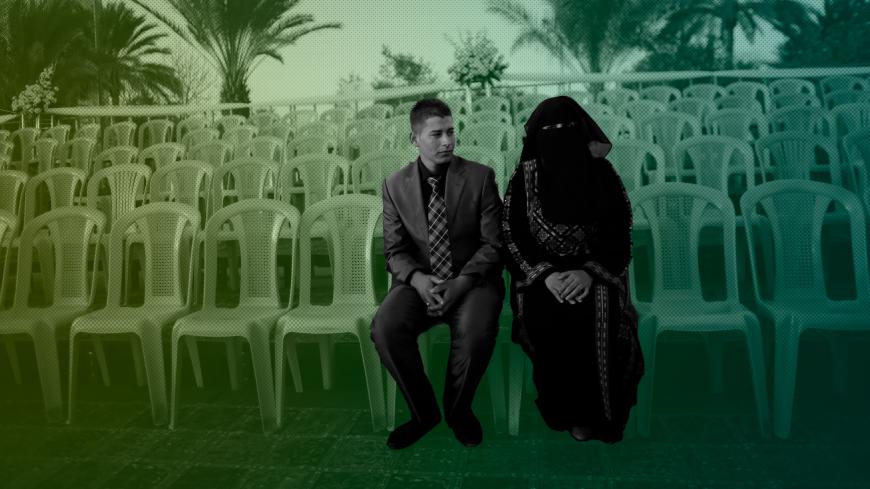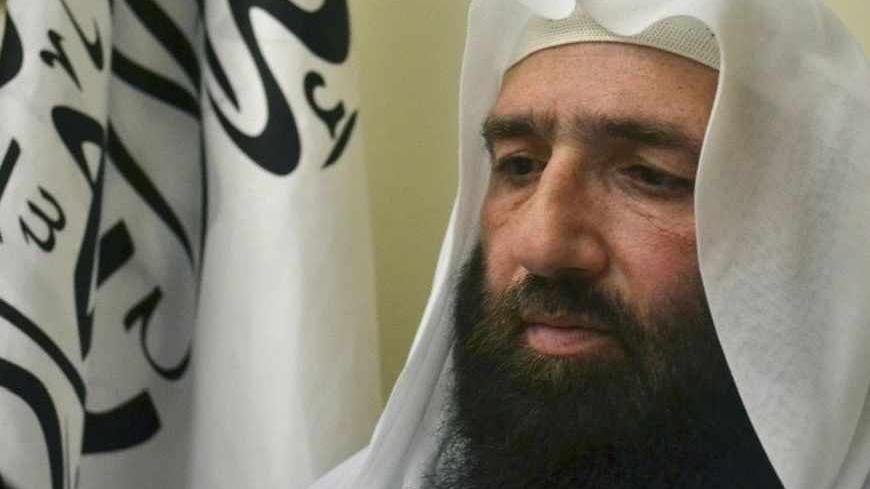What’s behind UK's terrorism conviction of Islamist preacher Anjem Choudary?
Choudary was previously imprisoned for his support of ISIS and has long campaigned for the imposition of Islamic law in the UK.

British Islamist preacher Anjem Choudary was found guilty on Tuesday of directing a terrorist organization, a move that could land the controversial preacher behind bars for decades.
The Woolwich Crown Court in London convicted Choudary of having a “caretaker role” in al-Muhajiroun, a proscribed terrorist organization. He was arrested in July 2023 and will be sentenced on July 30, the BBC reported.
Al-Muhajiroun advocates for the establishment of an Islamic caliphate in the UK. The group was formed in 1983 in Saudi Arabia by Syrian Islamist Sheikh Omar Bakri Mohammed. He was expelled from the kingdom and came to the UK in 1986, he told The Jamestown Foundation in a 2005 interview.
Al-Muhajiroun was first banned under the UK’s anti-terrorism laws in 2006, when it called itself al-Ghurabaa. It has operated under several names throughout its existence, including Muslims Against Crusades and Islam4UK. Al-Muhajiroun was included in the ban in 2010 as an alternative name for the same group.
Choudary, 57, an Islamist preacher from London of Pakistani origin, denied that he promoted al-Muhajiroun through his lectures, saying the group no longer exists. Prosecutors argued that the group exists under several names and that Choudary has spoken to said entities, including the New York-based Islamic Thinkers Society, according to The Associated Press.
Choudary was convicted alongside Canadian Khaled Hussein. Prosecutors said Hussein was a supporter of al-Muhajiroun.
Why it matters: Choudary has long been one of the most controversial figures in the UK for many reasons including his support for the implementation of Islamic law, or Sharia, in the country.
“I think many people will see that democracy is no good for the British,” he told the BBC in 2010. “We need an alternative. Unlike man-made law, Sharia is not something that gives you a right today, to take it away tomorrow. It’s good in all times and places.”
Choudary was imprisoned in 2016 for encouraging support of the Islamic State (ISIS), but he was released in 2018 after serving less than half of his five-and-a-half-year sentence. Choudary was ordered to be under strict supervision for the remainder of the sentence following the release, the BBC reported at the time.
Choudary is known for making provocative statements to English-language media. In 2014, he referred to ISIS’ persecution of Yazidis and Christians as “propaganda.”
“At the present time in Syria and Iraq, there’s an uprising taking place. People are removing brutal regimes and they’re implementing Sharia,” he told CNN. “By all accounts, Christians are returning to Mosul [and] many Yazidis have embraced Islam. Don’t believe your own propaganda.”
ISIS killed and subjugated thousands of Yazidis and Christians in 2014 when it swept through Iraq and Syria.
In 2011, The Guardian quoted Choudary as calling al-Qaeda founder Osama bin Laden “a modern-day hero” who “stood for the struggle, a symbol of resistance.”
Some members of al-Muhajiroun have been linked to attacks in the UK. The perpetrators of the 2013 murder of British soldier Lee Rigby and the 2019 London Bridge stabbing attack were involved with the group, according to British media reports.
Know more: The British government designated the Islamist group Hizb ut-Tahrir as a terrorist organization in January after the group celebrated Hamas’ Oct. 7 attack on Israel. Al-Muhajiroun formed out of Hizb ut-Tahrir.









